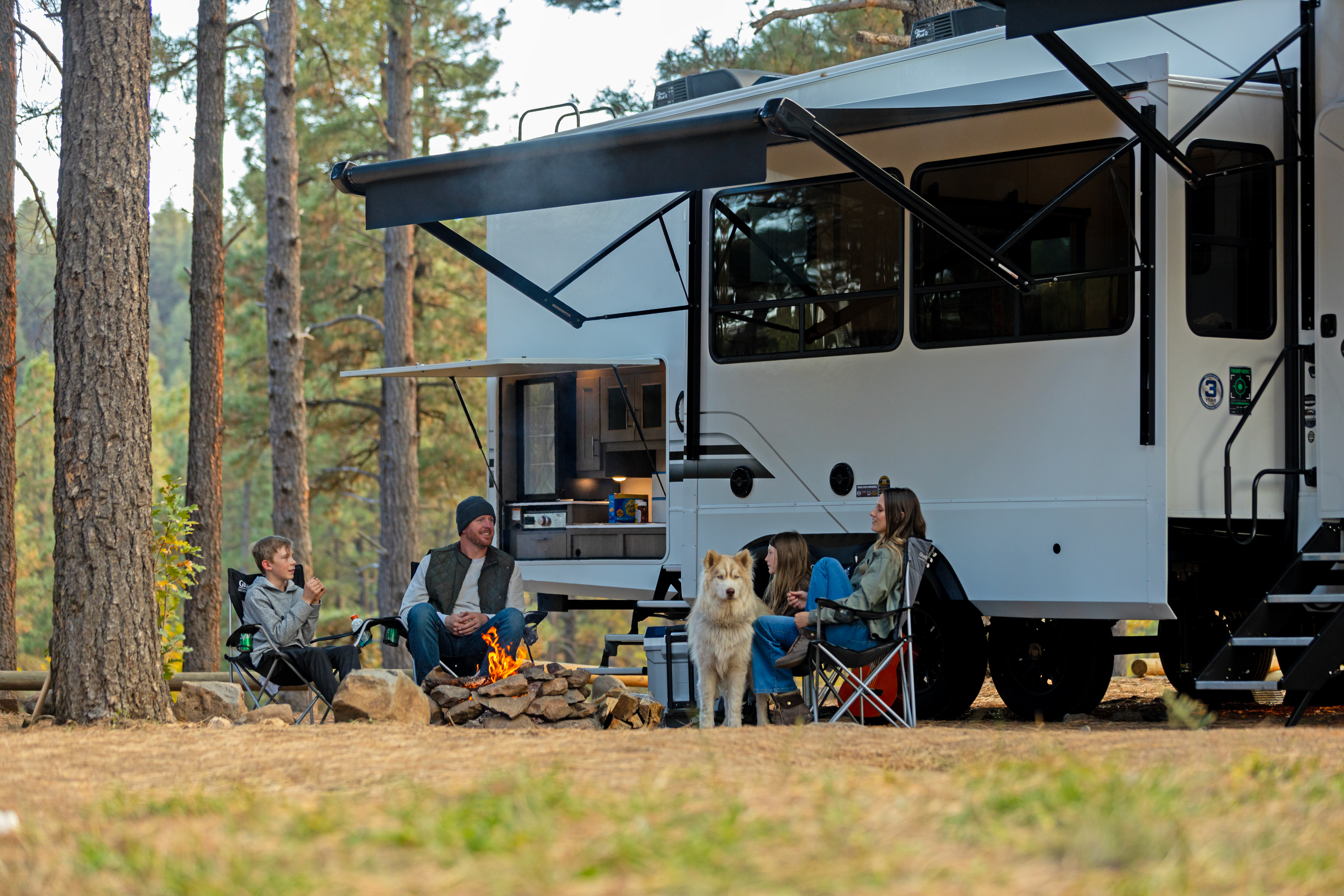LEARN
Top 6 Simple Safety Tips for New RV Owners

Whether you are an experienced RV owner or this is your first RV, safety should always be your first priority. After all, when you are taking a large unit on the road or camping in an unfamiliar area, there’s a lot to consider, mainly because there is so much that can go wrong if you aren’t careful, and the damage could be life-altering.
To prevent disaster, these six things should be top of mind for each and every trip you plan.
1. Mind the size
No matter the size of your RV, it’s going to add length and weight to your vehicle. So, when you are on the road, make sure to pull farther forward while beginning a turn at stop lights, turning wider than you would when you are not towing an RV. Experienced RV owners know this and should have sufficient practice. However, first-time owners should be aware of the extra space they will need while turning.
Another thing to consider while towing an RV is the height. If you are going on a trip, it is possible that you will encounter an overpass, tunnel, or other obstruction. To ensure that you don’t clip your precious RV, write down the height and keep it on your dashboard so it is easy to view while driving. Pay attention to clearance signs and refer to your height as needed.
It’s not just length and height that needs to be accounted for before hitting the road. You should also know your RV’s weight and GVWR (gross vehicle weight rating), which is the amount your vehicle is designed to carry, to make sure that you aren’t towing more than is possible or safe. The last thing you want is to lose your RV while you are barreling down the highway.
2. Be prepared
When going on any RV trip, it is important to be prepared for anything. Pack equipment that you might need in an emergency, such as shovels, road flares, toolkits, and more.
For roadside emergencies, bring a shovel, wheel blocks, a tire pressure gauge, motor oil or other fluids, and anything else you think you might need. Be sure to include registration, insurance, and warranty papers in case your vehicle or RV gets damaged.
For other emergencies, consider things like a first aid kit, fire extinguisher, toolkit, battery chargers, and duct tape. The list can go on. When in doubt, consider the risks you might experience on the way to and from your destination.
3. Drive safely
We know driving safely is easier said than done. However, there are specific steps you can take to make this happen.
To start, drive defensively. This means obeying the speed limit, avoiding distractions, and being cautious of other drivers on the road.
If you are new to towing an RV, take an RV driving course to obtain sufficient experience before you take your unit out for the first time. This not only protects you; it also protects others.
Additionally, all passengers should wear seat belts and sit in front-facing seats on your trip. In the case of an accident, this will save lives. (To clarify, no one should be riding in the RV while you are towing.)
And lastly, mind the weather. This should be a priority whether you are towing an RV or not, but it is especially important when you are pulling something heavy. Hazardous conditions become all the more dangerous when you’ve added significant weight and length to your vehicle. To prevent being surprised by a storm, check the forecast before you set out and monitor the situation as you drive. If it’s raining or snowing, the roads will be slippery.
4. Maintain your vehicle and RV
Another step you can take to avoid catastrophe is to keep both your towing vehicle and your RV up to date on maintenance. If you allow either of these to fall into disrepair, you are endangering yourself, your passengers, and others on the road.
Before you leave, do a thorough systems and mechanical inspection of your RV and vehicle. If something is broken, it is your responsibility to fix it.
Things that you should pay attention to include tires, brakes, and batteries
5. Balance your load
Every day, many RVs roll over due to their high centers of gravity. To prevent this from happening to you, it is important to balance your load.
To do this, you need to distribute your weight properly. Spread cargo out evenly throughout your RV so the weight on each side is proportionate to the others. Then secure the cargo to make sure it doesn’t shift during travel. As a tip, keep the center of gravity low and set your tire pressure accordingly.
Remember not to overload your RV either. Refer to the comments about weight above to ensure you are within a safe threshold.
6. Secure your RV
Being safe in an RV doesn’t stop once you set up camp. No matter where you go, there is always a possibility that someone may try to break and enter. To protect yourself, your loved ones, and your property, don’t leave your RV with the windows or doors open.
If your RV has a safe, lock up any valuables before you leave, as well. If you do not have a safe, bring valuables with you or hide them securely in a locked vehicle.
This may be a lot to take in, but each step is absolutely necessary in order to have a safe trip. As a driver and an RV owner, it is your responsibility to keep other people on the road safe. Any negligence in preparing for a trip could spell disaster.
If you need assistance preparing your Grand Design RV for a trip, visit one of our many service centers across the country.






